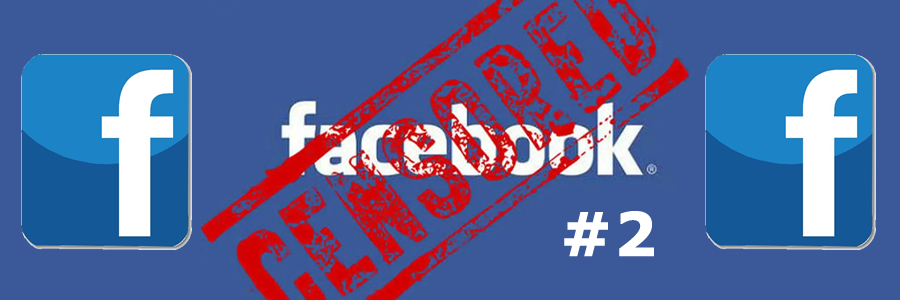Continuing from Facebook Post Approval #1 – Wed 21st Feb 2024
Is Facebook Post Approval a form of Censorship?
Censorship, in its broadest sense, refers to the suppression or control of information or ideas deemed objectionable, harmful, or sensitive. It has been a topic of debate throughout history as societies grapple with striking a balance between freedom of expression and protecting the well-being of individuals and communities.
When it comes to social media platforms, the issue of censorship becomes even more complex.
Facebook, with its massive user base and influence, faces the challenge of managing the vast amount of content shared on its platform. The post approval process is one-way Groups and Pages can attempt to address this challenge.
Post Approval aims to curb the spread of misinformation, hate speech, and other harmful content.
On the surface, this can be seen as a proactive approach by the Group Admins to maintain a safe and respectful online environment. By reviewing posts before they are visible to the public, Admins can prevent the dissemination of potentially harmful or false information, or criticisms of the product, service or even the company.
However, there are also concerns about the potential drawbacks of the post approval process. Critics argue that this process gives the Group Owners significant power to control the narrative and restrict certain viewpoints, thereby violating the principle of free expression.
Do the Group Admins, for instance, delete posts and information that would criticise the product, service or Company?
Critics argue that by selectively removing or suppressing certain types of content, the Group can influence public opinion and stifle important conversations.
User reporting plays a crucial role in the post approval process.
When users come across content they believe violates the community standards, they have the option to report it. The Admins take these reports into consideration when reviewing posts and determining whether they should be removed.
While user reporting can help in identifying and removing genuinely problematic content, it also introduces the potential for abuse or misuse.
False reports or targeted mass reporting campaigns can result in the removal of content that does not actually violate the community standards. This further adds to the concerns around the post approval process being prone to censorship.
Ø Balancing moderation and free expression on social media platforms:
The question of whether Facebook’s post approval can be considered as a form of censorship is a complex and nuanced one.
While the requirement for post approval aims to maintain a safe and respectful online environment, concerns remain about the potential for abuse, bias, and the restriction of certain viewpoints.
As social media platforms continue to play a significant role in shaping public discourse, it becomes crucial to strike a balance between moderation and free expression.
This balance should prioritise user safety, the dissemination of reliable information, and the promotion of diverse perspectives.
It is a delicate task that requires ongoing dialogue, transparency, and a commitment to upholding the principles of free speech in the digital age.
Is it worth it for your business?
Deciding whether Facebook post approval is worth implementing for your business depends on various factors.
Firstly, consider the size of your business and the volume of user-generated content your page receives.
If you have a small business with limited resources and a manageable number of posts, post approval may not be necessary.
However, if you have a larger business with a substantial following and frequent user engagement, post approval can offer valuable control over your content.
Additionally, consider the nature of your business and the potential risks associated with user-generated content.
If your industry is prone to spam, offensive language, or negative sentiment, post approval can help mitigate these risks.
On the other hand, if your business thrives on real-time engagement and spontaneous interactions, the delayed response time associated with post approval may hinder your ability to engage effectively with your audience.
Ultimately, the decision to enable Facebook post approval should align with your business goals, resources, and the level of control you wish to maintain over your page’s content. Carefully weigh the pros and cons, and assess how post approval fits into your overall social media strategy.
The post approval offers businesses a valuable tool to maintain brand consistency, prevent spam and inappropriate content, and mitigate potential social media crises.
However, it is essential to consider the potential drawbacks, such as delayed response time, reduced spontaneity, and increased workload for page administrators.
Whether or not post approval is worth implementing for your business depends on various factors, including the size of your business, the volume of user-generated content, and your industry’s nature.
Consider the alternatives, such as moderation tools, user guidelines, and pre-moderation, to find the approach that best aligns with your goals and resources.
Ultimately, the decision should be based on careful consideration of the pros and cons, ensuring that it supports your overall social media strategy.

